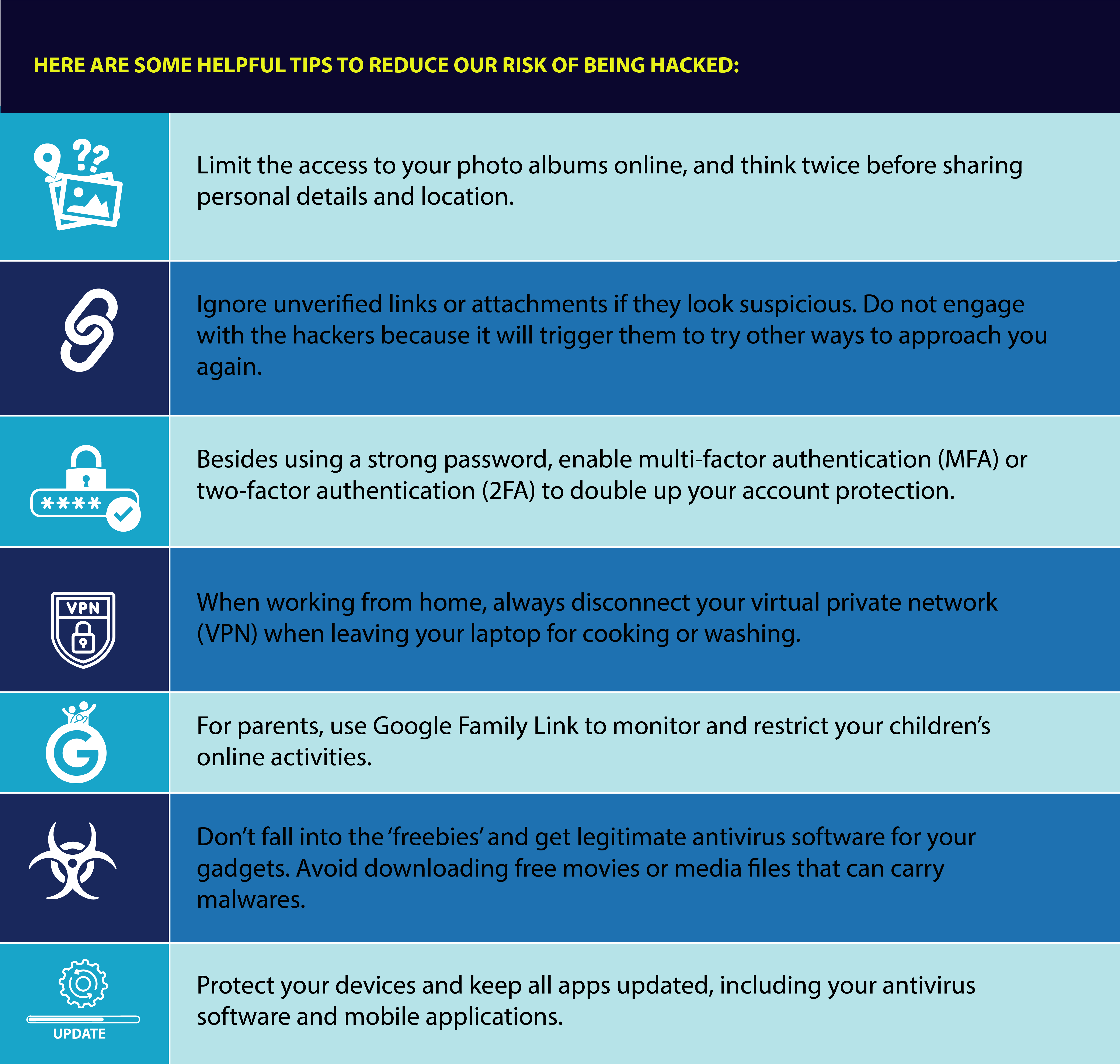Sheena Wong
Every now and then, a new hacking case makes headlines. Our home networks and security cameras can give away our privacy and safety. Even the Indian prime minister’s Twitter account had been compromised twice, and false tweets were sent out.
Yet, not all hacking attempts are unauthorised and ill-intended. In fact, ethical hacking is a common cybersecurity practice performed by a White Hat Hacker to simulate a malicious cyberattack. It plays a crucial role in identifying security flaws through penetration testing and vulnerability assessments.
We had the opportunity to talk to the Manager of Infrastructure and Operation, Muhammad Rohaizat bin Mohd Yusoff, an experienced White Hat Hacker, who shared with us some cybersecurity tips.

Hackers are constantly curious and driven to exploit vulnerabilities within the systems. They usually start with hacking into a public Wi-fi to peek into a stranger’s folders or even stealing and selling your internet connection bandwidth. Over time, they gain experience bypassing stringent security protocols to become an exploitive Black Hat Hacker, while some choose to help safeguard organisations from dangerous hackers with their hacking skills.
You might be surprised to know that hackers do not necessarily use your password to hack your accounts. They can uncover valuable details about your parent’s name or your learning institution by just browsing through your social media accounts – and those are the answers to your security questions when passwords are forgotten.
The consequences of a cyber security breach are not monetary alone. It can result in essential business contracts being manipulated or wiped off, sensitive personal data leakage, catastrophic network server crash and even day-to-day operation being halted. Thus, businesses and individuals need to protect themselves against such attacks.

“Hackers have advanced through the years, and so are their hacking tools. Hence, the best defense for yourself is to be diligent and aware of the latest hacking trends to perform your own checks,” Muhammad Rohaizat pointed out.
